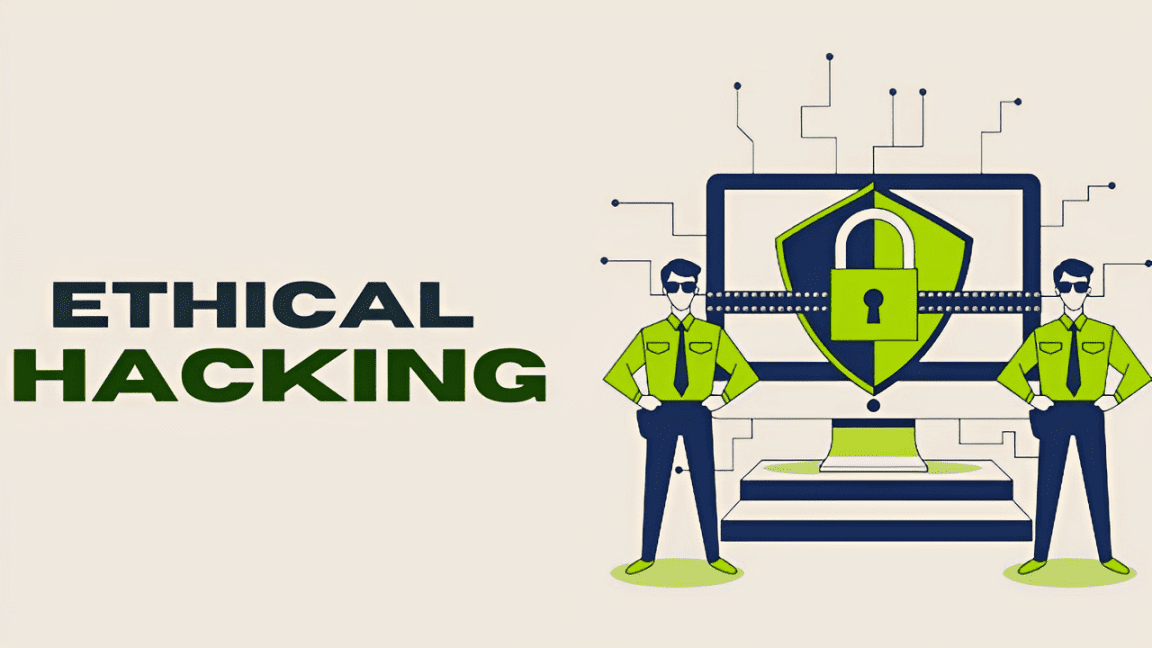Summary of the Blog
- what is Ethical Hacking
- Definition of ethical hacking – Explanation of the purpose and goals of ethical hacking
- Difference between ethical hacking and illegal hacking
- Ethical Hacking vs. Penetration Testing
- Definition and explanation of penetration testing
- Comparison of ethical hacking and penetration testing
What Ethical Hacking is?
Ethical hackers are like good-guy detectives for computers. They find and fix security problems to keep our digital world safe from bad guys, working with companies to secure online spaces like super-secure castles.
Definition of ethical hacking - Explanation of the purpose and goals of ethical hacking.
Ethical hackers search for and fix computer security issues to make the internet safer.
Difference between ethical hacking and illegal hacking
Ethical hacking is when experts explore computer systems to make them safer with permission, while illegal hacking is breaking into systems without permission, which is against the law and harmful.
Ethical Hacking vs. Penetration Testing
Ethical hacking and penetration testing share similarities, but they have distinct focuses. Ethical hacking is a broader term encompassing various security assessments, while penetration testing specifically involves simulating cyberattacks to identify and fix vulnerabilities in a targeted system. In simpler terms, ethical hacking is like a security mindset, and penetration testing is a hands-on approach within that mindset to strengthen specific defenses.
Definition and explanation of penetration testing
Penetration testing simulates cyberattacks to detect and fix system vulnerabilities, improving cybersecurity.
Comparison of ethical hacking and penetration testing
Ethical hacking involves various methods, while penetration testing is the hands-on part, simulating cyberattacks to strengthen defenses in a targeted system. Ethical hacking is the overall strategy, while penetration testing is the tactical mission within that strategy.
What is the difference between ethical hacking and penetration testing?
What is the difference between ethical hacking and penetration testing?
Objective:
- Ethical Hacking: Strengthen overall system security by identifying and fixing vulnerabilities through a comprehensive approach.
- Penetration Testing: Focus on specific system defenses by simulating cyberattacks to uncover and address vulnerabilities strategically.
Authorization:
- Ethical Hacking: Requires explicit permission to explore and assess systems legally.
- Penetration Testing: Conducted with explicit permission from the system owner, ensuring a legal and ethical framework.
Skills:
- Ethical Hacking: Involves a diverse skill set, including programming, networking, and various security practices.
- Penetration Testing: Requires proficiency in hacking techniques and a deep understanding of system vulnerabilities.
Reporting:
- Ethical Hacking: Produces comprehensive reports on overall security posture, offering a holistic view.
- Penetration Testing: Delivers detailed findings, risks, and recommendations specific to targeted vulnerabilities for focused improvements.
Frequency:
- Ethical Hacking: Conducted regularly as part of ongoing security measures.
- Penetration Testing: Typically performed periodically or in response to specific needs, maintaining a strategic approach.
Approach:
- Ethical Hacking: Inclusive of various security practices and risk management, providing a broad security strategy.
- Penetration Testing: Adopts a focused and hands-on approach, targeting specific vulnerabilities with tactical precision.
Conclusion:
Ethical hacking serves as a proactive guardian of digital landscapes, identifying and fortifying vulnerabilities to ensure robust cybersecurity in an ever-evolving technological era.





